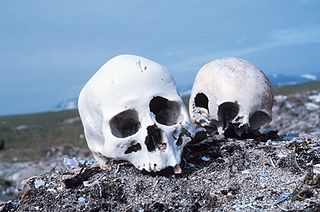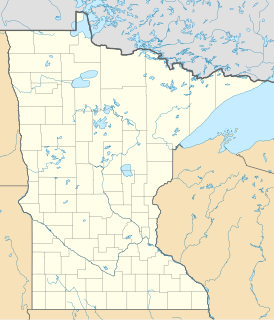
The Federal Bureau of Investigation (FBI) is the domestic intelligence and security service of the United States and its principal federal law enforcement agency. Operating under the jurisdiction of the United States Department of Justice, the FBI is also a member of the U.S. Intelligence Community and reports to both the Attorney General and the Director of National Intelligence. A leading U.S. counter-terrorism, counterintelligence, and criminal investigative organization, the FBI has jurisdiction over violations of more than 200 categories of federal crimes.

Forensic science, also known as criminalistics, is the application of science to criminal and civil laws, mainly—on the criminal side—during criminal investigation, as governed by the legal standards of admissible evidence and criminal procedure. Forensic science is a broad field that includes; DNA analysis, fingerprint analysis, blood stain pattern analysis, firearms examination and ballistics, tool mark analysis, serology, toxicology, hair and fiber analysis, entomology, questioned documents, anthropology, odontology, pathology, epidemiology, footwear and tire tread analysis, drug chemistry, paint and glass analysis, digital audio video and photo analysis.
The Uniform Crime Reporting (UCR) program compiles official data on crime in the United States, published by the Federal Bureau of Investigation (FBI). UCR is "a nationwide, cooperative statistical effort of nearly 18,000 city, university and college, county, state, tribal, and federal law enforcement agencies voluntarily reporting data on crimes brought to their attention".
The National Institute of Justice (NIJ) is the research, development and evaluation agency of the United States Department of Justice. NIJ, along with the Bureau of Justice Statistics (BJS), Bureau of Justice Assistance (BJA), Office of Juvenile Justice and Delinquency Prevention (OJJDP), Office for Victims of Crime (OVC), and other program offices, comprise the Office of Justice Programs (OJP) branch of the Department of Justice.

A fire marshal or fire commissioner, in the United States and Canada, is often a member of a state, provincial or territorial government, but may be part of a building department or a separate department altogether. Fire marshals' duties vary but usually include fire code enforcement or investigating fires for origin and cause. Fire marshals may be sworn law-enforcement officers and are often experienced firefighters. In larger cities with substantially developed fire departments the local fire departments are sometimes delegated some of the duties of the fire marshal.

The Serious Organised Crime Agency (SOCA) was a non-departmental public body of the Government of the United Kingdom which existed from 1 April 2006 until 7 October 2013. SOCA was a national law enforcement agency with Home Office sponsorship, established as a body corporate under Section 1 of the Serious Organised Crime and Police Act 2005. It operated within the United Kingdom and collaborated with many foreign law enforcement and intelligence agencies.
A special agent is an investigator or detective for a governmental or independent agency, who primarily serves in criminal investigatory positions. Additionally, many federal and state special agents operate in "criminal intelligence" based roles as well. Within the U.S. federal law enforcement system, dozens of federal agencies employ federal law enforcement officers, each with different criteria pertaining to the use of the titles Special Agent and Agent.
The Behavioral Analysis Unit (BAU) is a department of the Federal Bureau of Investigation's National Center for the Analysis of Violent Crime (NCAVC) that uses behavioral analysts to assist in criminal investigations. The mission of the NCAVC and the BAU is to provide behavioral based investigative and/or operational support by applying case experience, research, and training to complex and time-sensitive crimes, typically involving acts or threats of violence.
Joseph Leo Gormley was the chief of chemistry and toxicology for the FBI.

The Tennessee Bureau of Investigation (TBI) is the state bureau of investigation of the state of Tennessee. It has statutory authority to conduct criminal investigations and make arrests of crimes occurring throughout the state. The bureau is analogous to the FBI on the federal level.
A crime laboratory, often shortened to crime lab, is a scientific laboratory, using primarily forensic science for the purpose of examining evidence from criminal cases.
The following outline is provided as an overview of and introduction to law enforcement:
David J. Icove is a former Federal Bureau of Investigation Criminal Profiler and FBI Academy Instructor in the elite Behavioral Analysis Unit. He was one of the FBI's first criminal profilers to specialize in the apprehension of serial arsonists and bombers. He is Fellow in the National Academy of Forensic Engineers and co-author along with Gerald A. Haynes of Kirk's Fire Investigation, the leading textbook in the field of fire investigation.
The FBI National Academy is a program of the FBI Academy for active U.S. law enforcement personnel and also for international law enforcement personnel who seek to enhance their credentials in their field and to raise law enforcement standards, knowledge, and also cooperation worldwide. The FBI National Academy is held four times a year, when up to 250 candidates go through a 10-week course.

The Federal Investigation Agency is a border control, criminal investigation, counter-intelligence and security agency under the control of the Interior Secretary of Pakistan, tasked with investigative jurisdiction on undertaking operations against terrorism, espionage, federal crimes, smuggling as well as infringement and other specific crimes.

Dwight E Adams, is a forensic scientist.

The Criminal, Cyber, Response, and Services Branch (CCRSB) is a service within the Federal Bureau of Investigation (FBI). Created in 2002 as part of the U.S. government's post-9/11 response, the CCRSB is responsible for investigating financial crime, white-collar crime, violent crime, organized crime, public corruption, violations of individual civil rights, and drug-related crime. In addition, the Branch also oversees all computer-based crime related to counterterrorism, counterintelligence, and criminal threats against the United States.
The Science and Technology Branch is service within the Federal Bureau of Investigation that comprises three separate divisions and three program offices. The goal when it was founded in July 2006 was to centralize the leadership and management of the three divisions. The mission of the STB is discover, develop, and deliver innovative science and technology so that intelligence and innovative investigation is enhanced.
James R. Fitzgerald is an American criminal profiler, forensic linguist, and author. He is a retired FBI agent and best known for his role in the UNABOM investigation, which resulted in the arrest and conviction of Ted Kaczynski.

The Minnesota Bureau of Criminal Apprehension (BCA) is a statewide criminal investigative bureau under the Minnesota Department of Public Safety that provides expert forensic science and criminal investigation services throughout the state of Minnesota. The BCA assists local, state, tribal, and federal agencies in major criminal investigations. It is headquartered in St. Paul.







